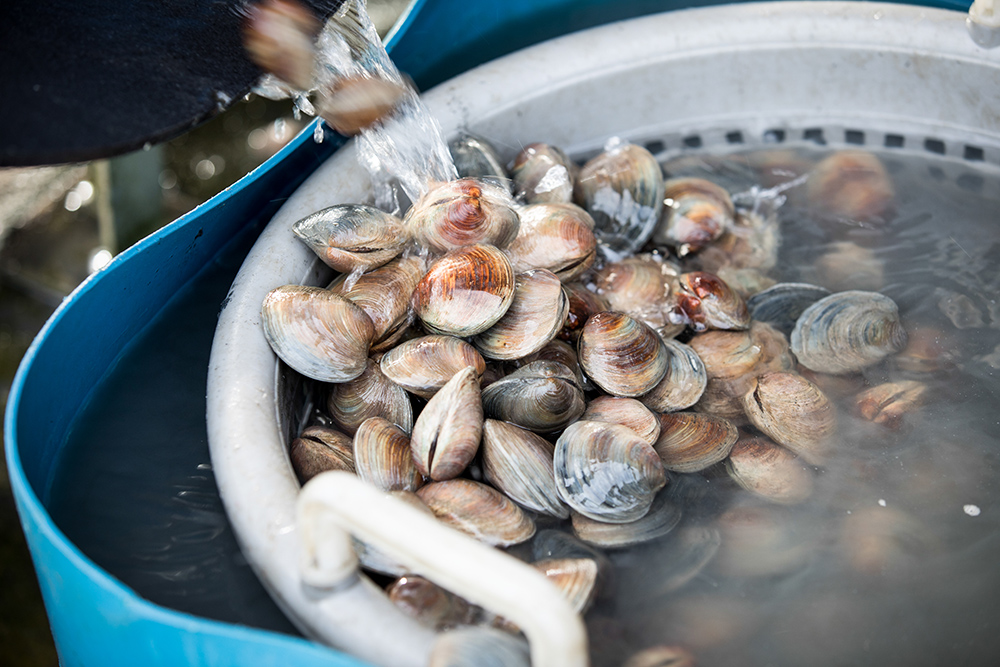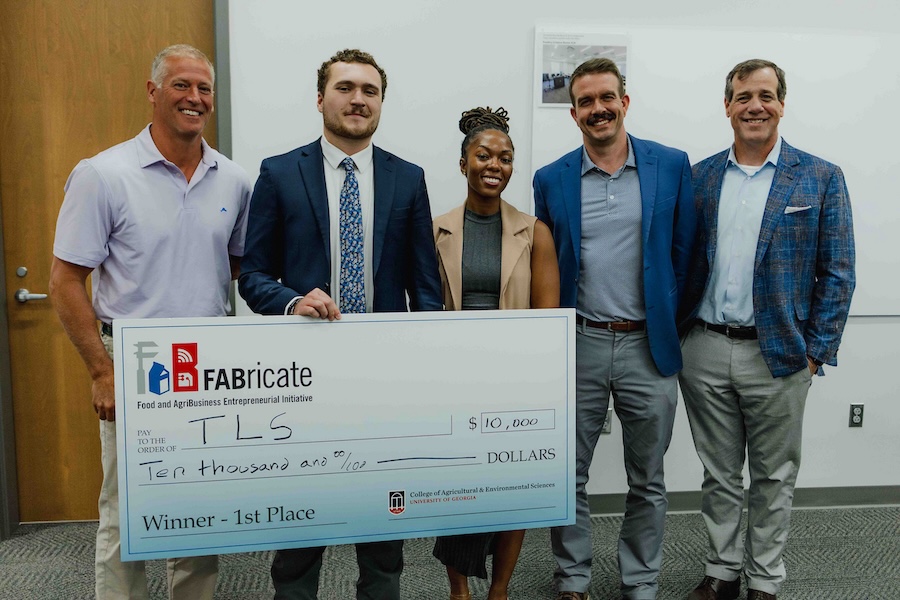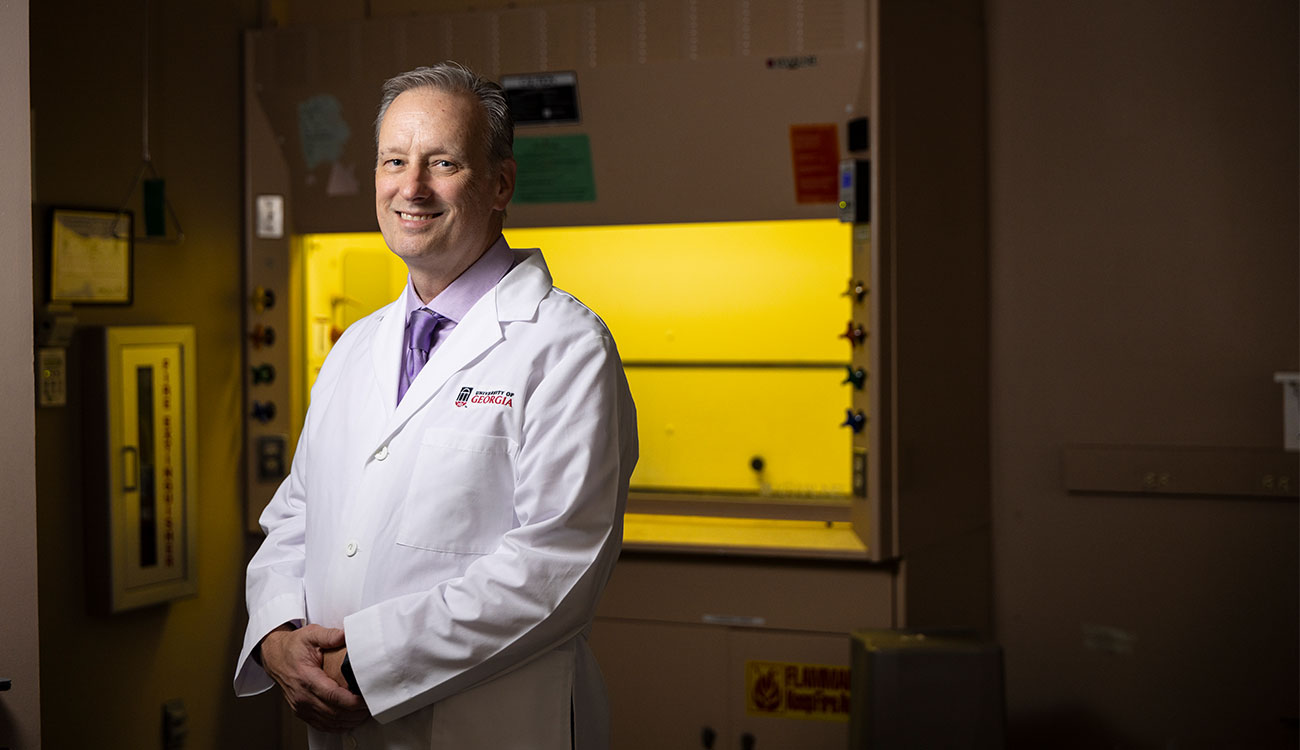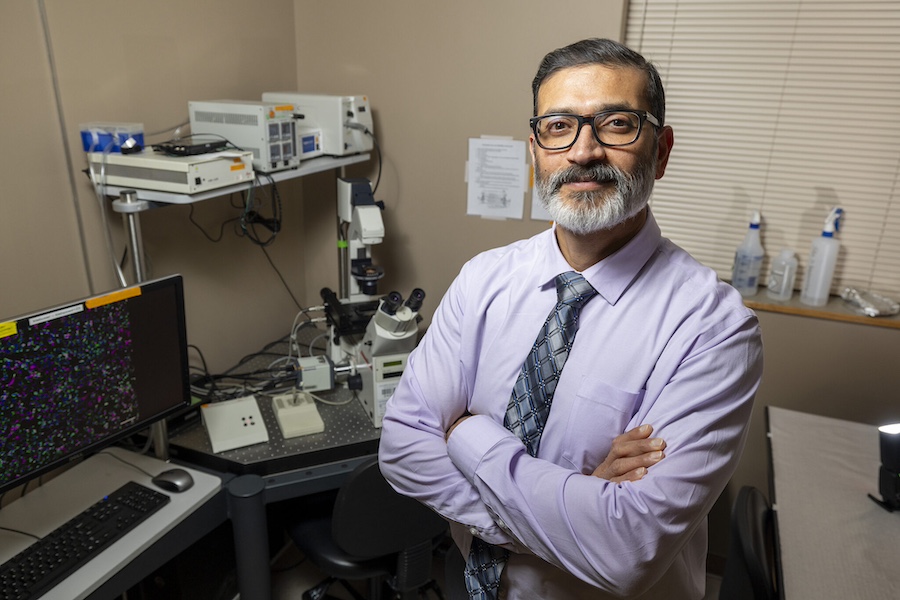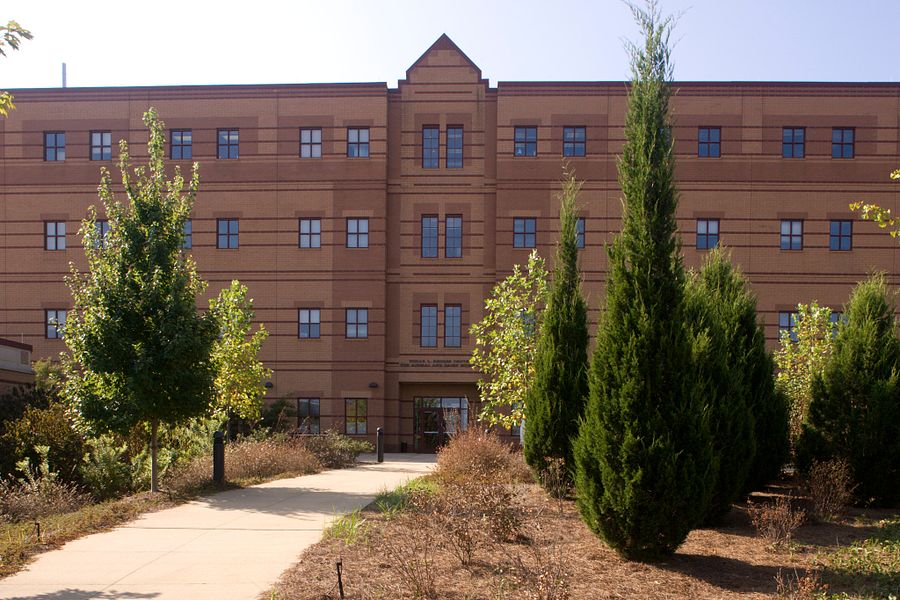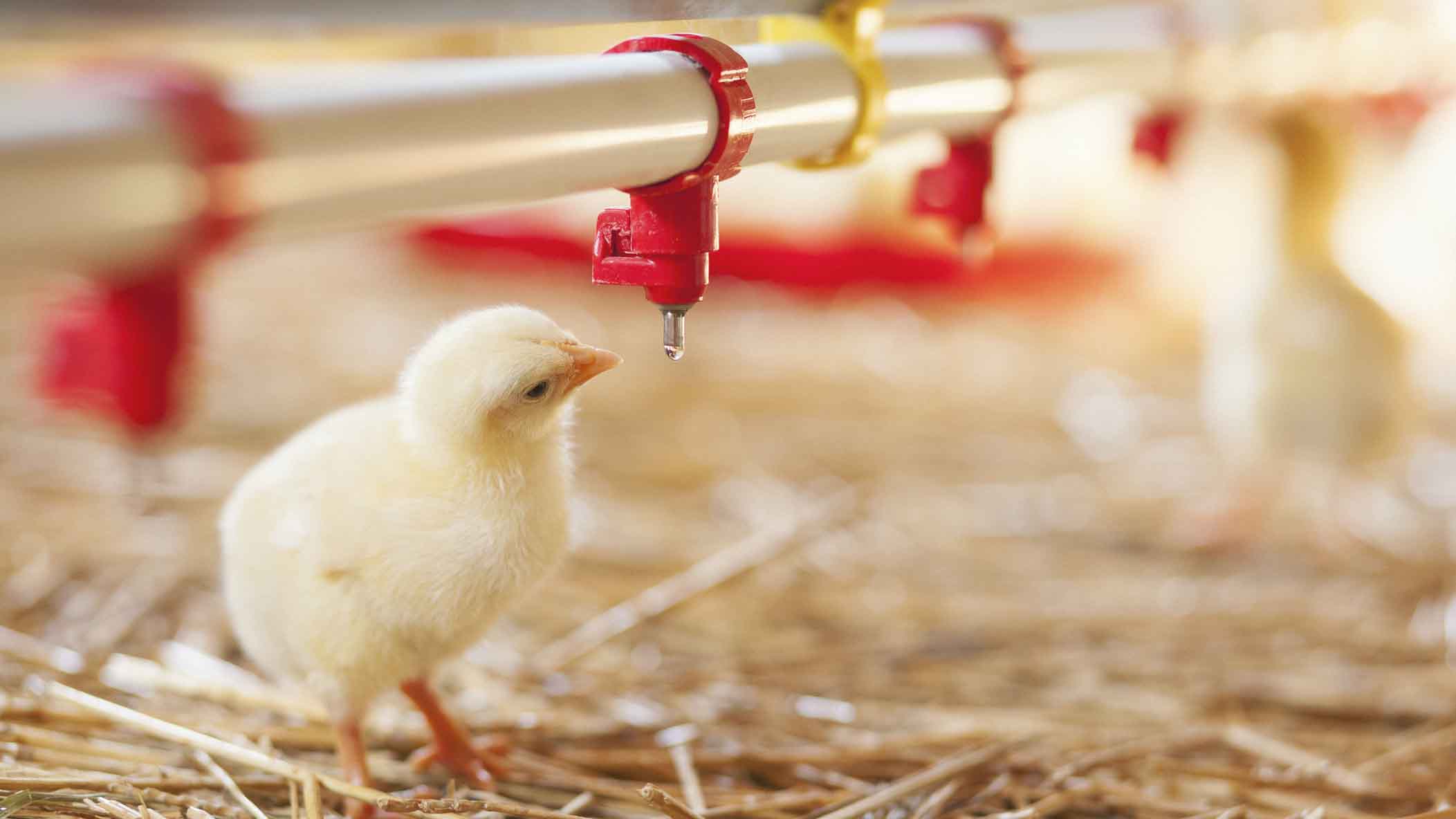
With nearly 2.5 million employed in an industry that produces 1.1 billion broilers per year, Egypt’s poultry industry is booming. Because of its dry climate, however, the country’s production levels are heavily reliant on producers’ ability to use resources efficiently without compromising output.
One of the most precious resources required for that production is water.
For Egypt and other areas prone to drought and high heat, it is essential to find ways to optimize water use through high-tech infrastructure, sustainable agricultural practices, and ultimately, the chickens themselves.
Sammy Aggrey, a professor in the University of Georgia College of Agricultural and Environmental Sciences (CAES) Department of Poultry Science, says that all it took was one research visit to the region to spark his curiosity — how do we increase efficient water utilization in chickens? After 10 years researching feed utilization, a concurrent issue of optimizing poultry production, Aggrey is now shifting directions to answer that question.
“Water utilization is important because water is a finite commodity,” says Aggrey. “Basically, we can run out of fresh water supply.”
On top of that long-term concern, the world experienced more drought in the 21st century than any previous century on record, an issue that is particularly relevant in countries and regions like Egypt where water is already scarce. Aggrey, along with his research team, are hoping they can make a difference not only locally in Egypt, but ultimately on a global scale.
To support efforts to isolate the genes responsible for water intake, Aggrey has been awarded a grant through the U.S.-Egypt Science and Technology Joint Fund to pursue a project titled “Improving the Efficiency of Water Intake Utilization in Poultry.”
Water conservation on a genetic level
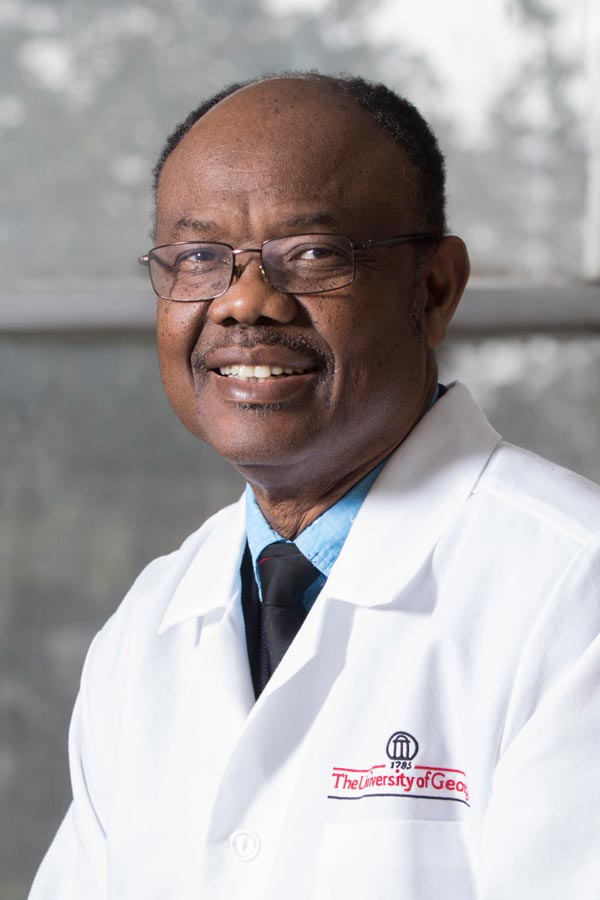
Research efforts in Athens will be joined with the work of Mohamed El Sabry of Cairo University in Egypt over the next three years. Joining this project is another CAES faculty member, Romdhane Rekaya, a professor in the Department of Animal and Dairy Science. Rekaya, who was raised in North Africa, understands the implications of a project like this one.
“For producers in drought-prone areas, even a small quantity of water can make the difference between profit and failure. Many producers in Egypt are small-scale operations which don’t have access to running water or a well, so they use less-than-perfect means for water,” Rekaya says.
This study could give producers the ability to respond in a crisis, such as a drastic heat wave, in order to save their flocks and their livelihoods. With margins as narrow as 100 gallons, producers in drought-prone areas are often operating on a knife’s edge.
“The real question is this: how can we produce a bird that can withstand a longer period of time with limited access to water?” Rekaya says.
At UGA, Aggrey and Rekaya will oversee the development of infrastructure needed to collect individual water intake and other performance parameters in a pedigreed chicken population through the production cycle. Creating this infrastructure will allow researchers to study the genetic basis of water utilization and its relationship with other production parameters.
Animal welfare is a primary concern for both researchers and producers, so this project will first seek to understand how restriction might affect the bird.
Egyptian producers and researchers will measure overall bird health against water intake levels in order to identify the healthiest, most efficient birds in the flock. Researchers in Athens will then delineate the molecular mechanisms that determine water intake utilization in the kidney, liver and hypothalamus of those birds. This data will generate genetic markers necessary to make chickens more efficient at using water, allowing breeders to begin selecting for those preferred genetic markers.
Global reach of sustainable agriculture
In addition to an opportunity to improve poultry production in the world, projects like this one highlight the importance of international cooperation on research projects that have the potential to make an impact.
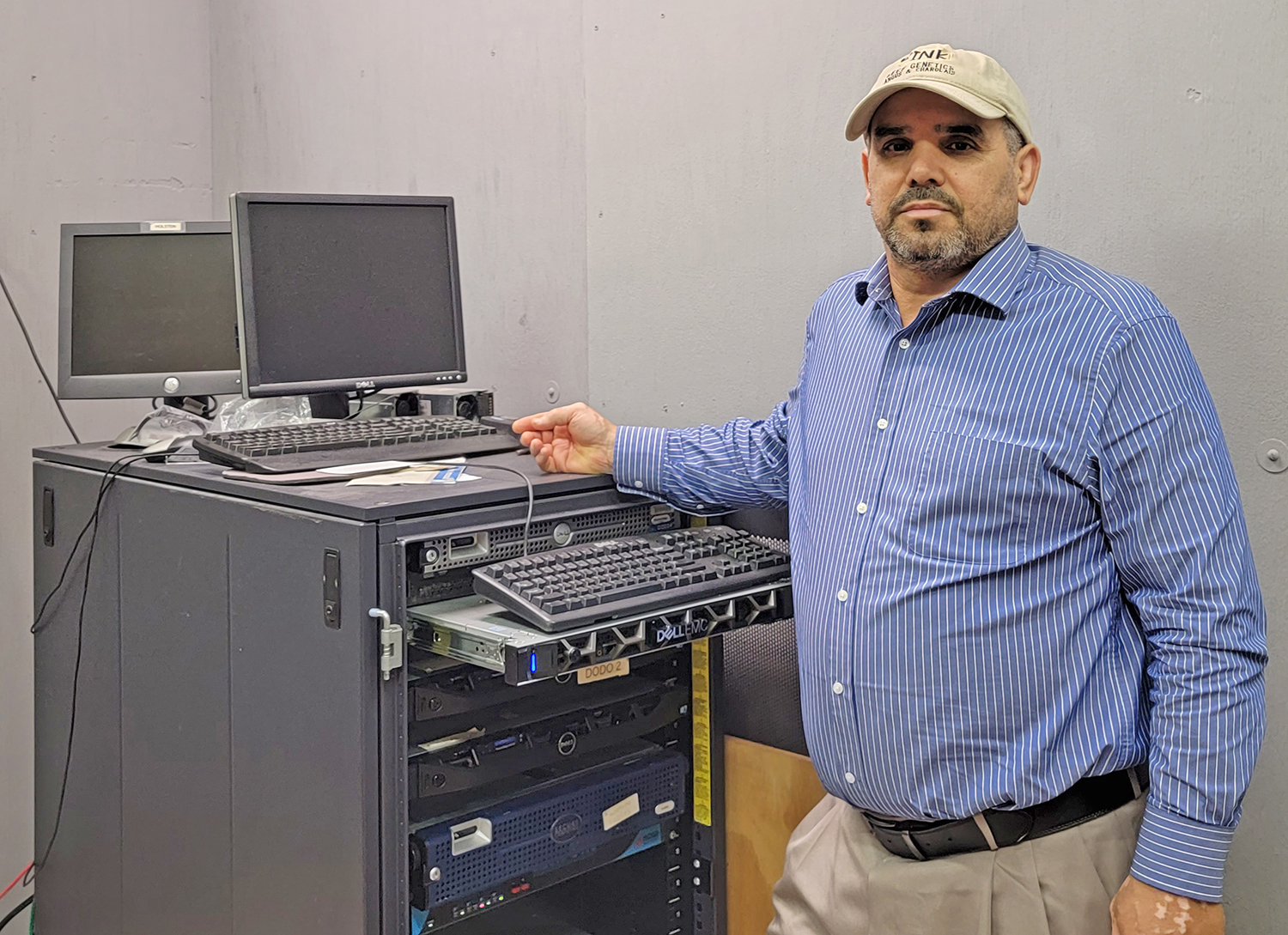
“To accomplish much in research, one has to collaborate,” says Aggrey. “There are some issues that have global implications and for such issues, international collaboration allows us to have a broader perspective.”
UGA has access to the kind of resources that produce meaningful results, and Rekaya sees this as a worthy investment that goes beyond the poultry industry itself.
“With projects like this, we are able to open the door for continued collaboration between the United States and countries around the world, which allows us to consider other projects in the future. More importantly, researchers have an obligation to the continued health and prosperity of the world — if we are able to make a meaningful difference in our field and the world, we should be trying to do that.”
The U.S.-Egypt Science and Technology Joint Fund is a partnership between the Government of the United States of America and the Government of the Arab Republic of Egypt that exists to strengthen the scientific relationship between these two countries. Funding for this project is provided jointly by the United States Agency for International Development (USAID) and the Egyptian Science, Technology and Innovation Funding Authority (STDF).
To learn more about research in the Department of Poultry Science, visit poultry.caes.uga.edu. To support the college's campaign to better equip the poultry industry for the challenges and opportunities of the future, visit poultrybuilding.caes.uga.edu.

